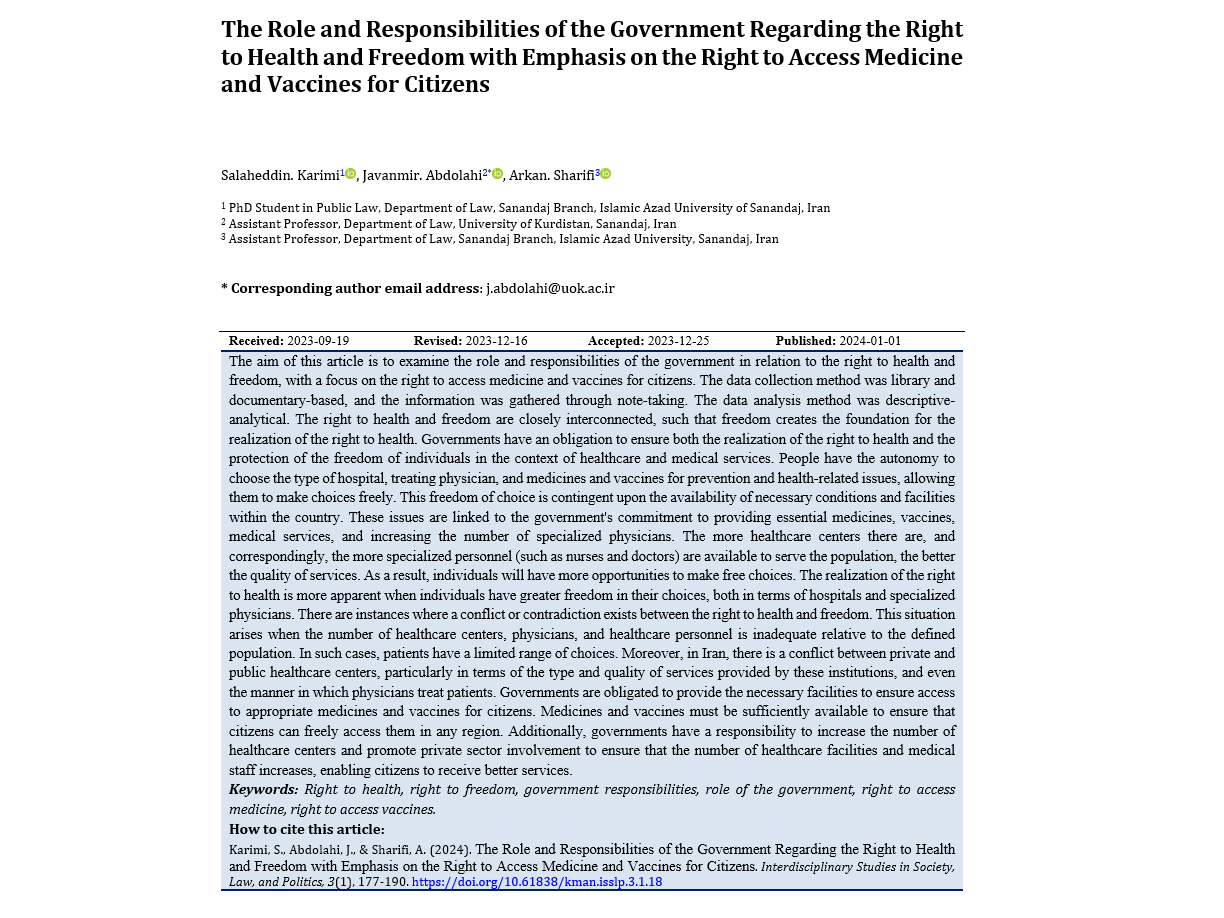The Role and Responsibilities of the Government Regarding the Right to Health and Freedom with Emphasis on the Right to Access Medicine and Vaccines for Citizens
Keywords:
Right to health, right to freedom, government responsibilities, role of the government, right to access medicine, right to access vaccinesAbstract
The aim of this article is to examine the role and responsibilities of the government in relation to the right to health and freedom, with a focus on the right to access medicine and vaccines for citizens. The data collection method was library and documentary-based, and the information was gathered through note-taking. The data analysis method was descriptive-analytical. The right to health and freedom are closely interconnected, such that freedom creates the foundation for the realization of the right to health. Governments have an obligation to ensure both the realization of the right to health and the protection of the freedom of individuals in the context of healthcare and medical services. People have the autonomy to choose the type of hospital, treating physician, and medicines and vaccines for prevention and health-related issues, allowing them to make choices freely. This freedom of choice is contingent upon the availability of necessary conditions and facilities within the country. These issues are linked to the government's commitment to providing essential medicines, vaccines, medical services, and increasing the number of specialized physicians. The more healthcare centers there are, and correspondingly, the more specialized personnel (such as nurses and doctors) are available to serve the population, the better the quality of services. As a result, individuals will have more opportunities to make free choices. The realization of the right to health is more apparent when individuals have greater freedom in their choices, both in terms of hospitals and specialized physicians. There are instances where a conflict or contradiction exists between the right to health and freedom. This situation arises when the number of healthcare centers, physicians, and healthcare personnel is inadequate relative to the defined population. In such cases, patients have a limited range of choices. Moreover, in Iran, there is a conflict between private and public healthcare centers, particularly in terms of the type and quality of services provided by these institutions, and even the manner in which physicians treat patients. Governments are obligated to provide the necessary facilities to ensure access to appropriate medicines and vaccines for citizens. Medicines and vaccines must be sufficiently available to ensure that citizens can freely access them in any region. Additionally, governments have a responsibility to increase the number of healthcare centers and promote private sector involvement to ensure that the number of healthcare facilities and medical staff increases, enabling citizens to receive better services.
Downloads






